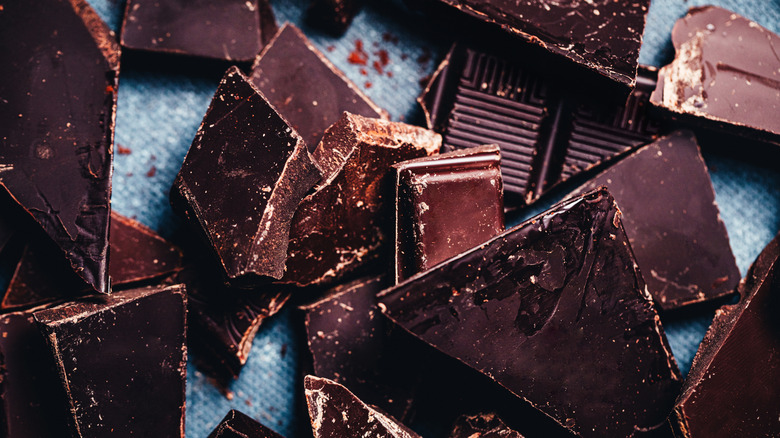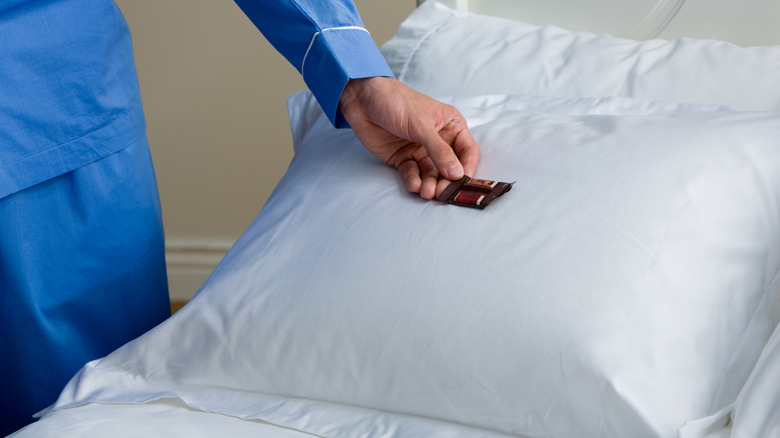Can Dark Chocolate Really Help You Sleep? It's Complicated
When it comes to the intersection of food and wellness, there are a number of popular stories we'd love to believe in, such as: A daily glass of wine is actually healthy, or a square of dark chocolate is the key to restful sleep. Unfortunately, the science behind these too-good-to-be-true claims usually reveals them to be just myths — or at least complicates the narrative. Some people swear that a high-quality dark chocolate bar makes for a great sleep aid, but others may find it keeps them tossing and turning.
Let's start by unpacking why dark chocolate could help you get a good night's rest. Different types of chocolate are distinguished, in part, by the percentage of cocoa solids they contain. Dark chocolate, unlike its commonly conflated cousin semi-sweet chocolate, usually contains around 70% to 100% cocoa solids. That not only gives it a super intense chocolate flavor, it also means it has a high concentration of beneficial minerals, including magnesium. Magnesium helps regulate the body's internal clock and promotes relaxation, and a 1-ounce square of dark chocolate contains roughly 65 milligrams of it — about 15% of the Daily Value. Additionally, dark chocolate contains tryptophan, the amino acid that converts to serotonin and is linked to sleepiness.
However, these benefits don't mean that you should eat a chocolate bar every night before bed. Studies have found that, while eating chocolate can help regulate your circadian rhythm, the positive effects come from eating it in the morning. At night, you risk disrupting your sleep cycle with stimulating ingredients.
The negative effects of dark chocolate on sleep
Now, for the bad news: While dark chocolate contains some chemicals that promote relaxation, it also contains ones with an opposite, stimulating effect. Namely, dark chocolate contains caffeine, sugar, and another stimulant called theobromine. Some even consider chocolate of any kind to be one of the worst foods to eat before bed due to its stimulating properties.
Since dark chocolate has a higher percentage of cocoa solids than milk chocolate, it also contains more caffeine. A 2-ounce serving of 70% dark chocolate contains roughly 50 to 60 milligrams of caffeine (or about 25 to 30 milligrams per ounce), and can be higher depending on its percentage of cocoa solids. For comparison, a shot of espresso and a small cup of coffee each contain about 63 and 95 milligrams of caffeine, respectively. Even if you don't eat the whole chocolate bar, that could still have a detrimental effect on your sleep. Cacao, the building block of dark chocolate, is also a major source of the alkaloid theobromine, a stimulant which is considered gentler than caffeine, but can still cause increased heart rate and wakefulness.
It's true that dark chocolate contains far less sugar than milk or white chocolate, but that doesn't make it sugar-free, especially if you're buying a dark chocolate bar from the grocery store. Even the so-called "world's best" dark chocolate contains just two ingredients: cacao and sugar. If sugar tends to make you hyper and alert, it's probably best to skip any sweet treat near bedtime, even dark chocolate.

